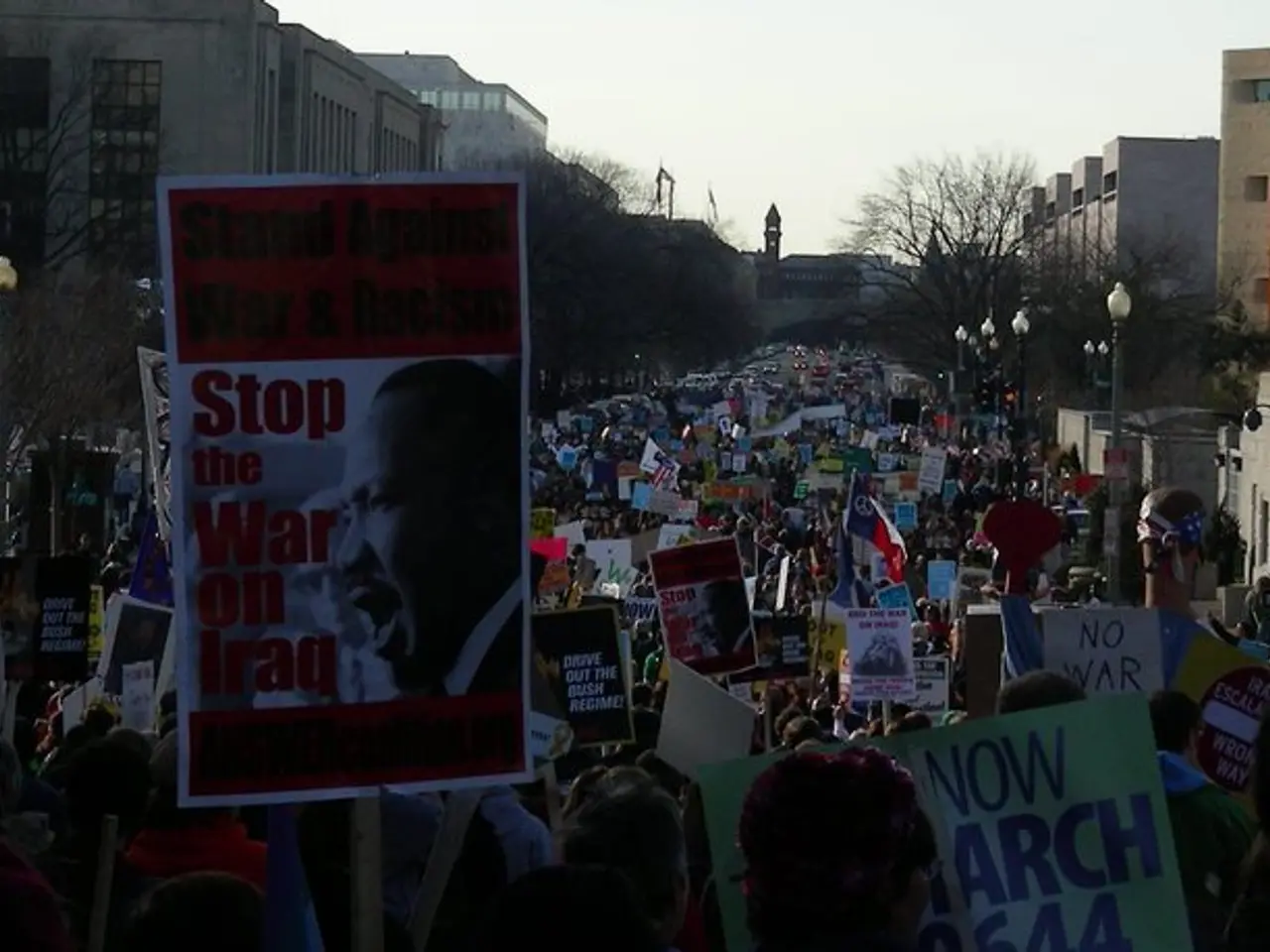Controversy erupts over suspension of Kimmel due to remarks about Kirk, igniting debates on freedom of speech and censorship
In a dramatic turn of events, Jimmy Kimmel's late-night show was pulled from the air on September 17, 2025, following his controversial monologue on September 14. The monologue, which was highly criticised for its sharp criticism of the right-wing response to the assassination of conservative activist Charlie Kirk, led to a political backlash, suspension of his show by ABC, and sparked debates about free speech in the U.S.
The alleged shooter of Charlie Kirk, who was killed on Sept. 10, 2025, reportedly showed a left-wing orientation, according to text messages and information provided by the shooter's parents. However, Kimmel's monologue accused parts of the right of exploiting the murder politically and claimed the alleged attacker was connected to the MAGA movement.
FCC Chairman Brendan Carr, in response to Kimmel's comments, called them the 'sickest conduct possible'. The U.S. government also threatened to cancel broadcasting licenses due to these comments. Carr has stated that local broadcast stations, which have licenses granted by the FCC, have an obligation to operate in the public interest. He further noted that there is only a 'relatively small category of speech' that is not protected, such as speech that incites violence.
However, FCC Commissioner Anna Gomez disagrees with how Carr is applying the public-interest standard, stating that the FCC does not have the authority to revoke licenses because of content. Carr, on the other hand, has expressed his openness to changing the rule, calling it 'arcane' and 'artificial'.
The controversy surrounding Kimmel's show comes at a time when the future of free speech is under scrutiny. In 2019, Carr wrote that the FCC does not have a roving mandate to police speech in the name of the 'public interest'. Yet, Trump has called for the FCC to revoke ABC and NBC licenses, a practice he argues Democrats and the Biden administration did through 'weaponization' of the Justice Department. Trump's attorney general, Pam Bondi, has stated that the Justice Department would 'absolutely target' those using hate speech.
The conversation around freedom of speech has taken a new level with the killing of Charlie Kirk. Trump, who has made 'free speech' a cornerstone of his presidential campaign, has pledged to fight for it. Meanwhile, the merger of Nexstar Media and Tegna, which may require the Trump administration to lift the cap, is at the heart of why Kimmel was pulled off the air. FCC rules limit the reach of local broadcasters, and with this merger, Nexstar would exceed that reach.
As the debate around free speech continues to unfold, one thing is clear: the line between political satire and hate speech is becoming increasingly blurred, and the future of free speech in the U.S. remains uncertain.
Read also:
- United States tariffs pose a threat to India, necessitating the recruitment of adept negotiators or strategists, similar to those who had influenced Trump's decisions.
- Weekly happenings in the German Federal Parliament (Bundestag)
- Southwest region's most popular posts, accompanied by an inquiry:
- Discussion between Putin and Trump in Alaska could potentially overshadow Ukraine's concerns






